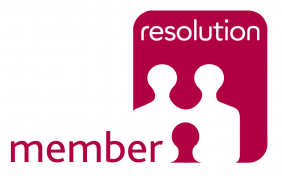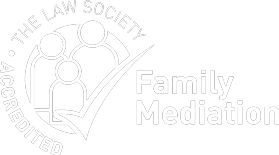Making divorce better
Divorce is difficult, on so many levels. But, as lawyers who help families untie bonds and reshape their future, we see the opportunity it brings for people to move on, equipped for the next phase in their lives.
One common myth we’re always keen to dispel is that divorce will be an entirely negative and hostile experience. The truth is that it doesn’t have to be. Our experience allows us to guide you on some important steps you can take to help alleviate the impact on you of the divorce/separation process:
Have the right people around you
Surround yourself with people who’ll help and support you. Friends and family really come into their own at times like these, so lean on those that truly have your back. Seek out the right legal and financial help, too. Divorce can be a long and intense process, so it’s worth investing time in finding professionals you click with.
Be prepared
Go into divorce with your eyes wide open. That means understanding what the process will involve, as well as what divorce will mean for you and your family. It also means getting your financial affairs in order. While divorce settlements are sometimes based on a ‘broad brush’ division of assets, time will need to be spent documenting those things owned jointly (the house, for example), and those owned separately – investments and valuables, perhaps. The earlier you can get your paperwork organised (and don’t be afraid to ask for help), the better able your solicitor will be to start working towards getting you the best outcome.
Consider mediation
Divorce doesn’t always need to be fought in the courts. Where two people are able and willing to work together to agree the terms of their divorce, mediation can be a great way of achieving a settlement. The mediator acts as an independent third party, helping a couple work through their issues and reach a resolution. The parties remain in control, as opposed to a judge imposing terms. It can be quicker and less expensive than court. And the emphasis on collaboration can even begin to build bridges, which can be particularly important for those who need to maintain a more positive ongoing relationship with each other.
Collaborative law operates in a similar way, yet you are each represented by your own solicitor in 4-way meetings (in person or by video link) and you all work together in a non oppositional way to negotiate and reach agreement on all issues relating to your divorce/separation and child arrangements. In a collaborative setting you agree at the outset that you will not resort to court proceedings and this allows parties to negotiate and communicate more openly without the threat of litigation if they don’t ‘concede’.
Put your children first
Most separated parents are conscious of their children being caught in the middle of their relationship breakdown. But the reality of divorce is that children’s needs and wishes are not always met; parents can be easily and unintentionally distracted by fighting their own corner. Our advice is always to try to step into the child’s shoes. What would he or she want? What would be in his or her best interests? Sometimes this means backing down when you don’t want to, and that can be hard. But keep sight of the bigger picture.
Accept that divorce won’t be easy
Clients tell us that, during the most difficult parts of their divorce, they were spurred on by remembering ‘why’. That really is key. No one embarks on divorce lightly. They do it because their relationship is irreparable, despite best efforts. And they do it to find happiness elsewhere. Divorce is the (occasionally wobbly) stepping stone to getting there.
If you need advice on divorce or separation, please contact Susi Gillespie or speak to a member of our family team on 020 3811 2894.











